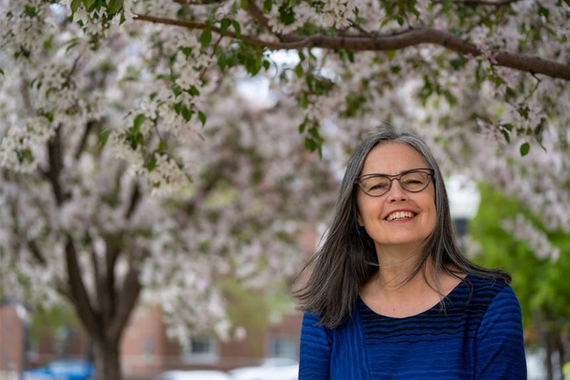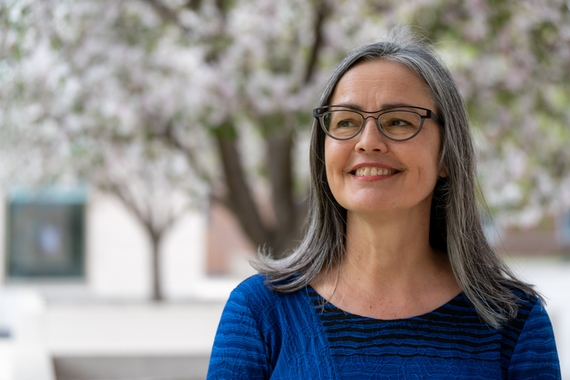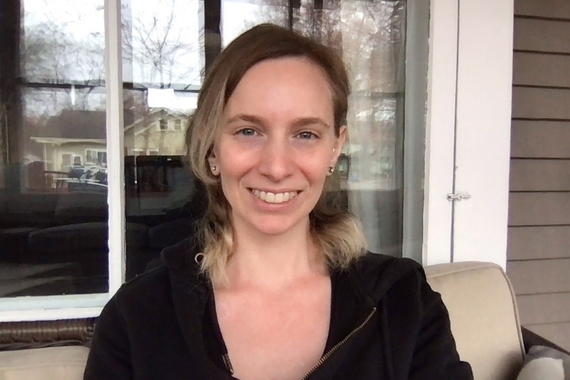New Interdisciplinary Course Explores Philosophical Issues in Medicine
Taught by philosophy professor Alan Love and family physician Steven Stovitz of the medical school, the interdisciplinary course Disease, Diagnosis, and Intervention: Conceptual Issues in Medicine teaches new ways of understanding the medical world and disease to a variety of majors and prepares students for their future, from further coursework in fields related to individual and public health to working with medical concepts in health careers.
Love and Stovitz have also taken the topics covered in the course, such as evolutionary medicine and the prospects of a vaccine, and related them to COVID-19. In addition to recently publishing an op-ed in the Los Angeles Times analyzing risk in the context of the coronavirus and examining gray areas of public understanding, the two instructors have used the pandemic to illustrate the connection between philosophical aspects of medicine explored in the course and real-world decision-making in public health.
Overall, Love and Stovitz have created a course that attracts students from a variety of majors and allows them to better understand the medical world. The class teaches students to reflect on the nature of disease and illness and what it really means to be healthy, and encourages them to become more open-minded to and observant of the complexities of the medical world.
Origins of the Course
“A key part of the inspiration behind this course was an awareness that there are a growing number of people who are not just going to medical school, but [are] somehow involved in health-related professions,” says Love. “However, a class that addresses these sorts of questions and issues was not otherwise available to those students.”
The University of Minnesota encourages students and faculty to explore opportunities outside the confines of their areas of study. These opportunities lead many students to find new interests or ways to connect their field of study to another, and they are also available to faculty. The Minnesota Center for Philosophy of Science (MCPS) pilots one such opportunity, bringing faculty members of various disciplines together and allowing them to establish cross-disciplinary connections.
Stovitz and Love met through a MCPS study group focused on reproducibility in the sciences. This encounter and new connection led to Stovitz giving a guest lecture in Love’s philosophy of medicine course in 2019, and soon they were talking about co-teaching the course. That dream was realized in spring 2020, the first semester they co-taught the class.
A Strong Foundation
Love and Stovitz’s course focuses on the philosophical implications behind the concepts used in medical inquiries. Love describes it as “a class on medical epistemology,” where students study “how we know what we know in medicine.” Stovitz noted that the class teaches “new ways of thinking,” such as looking into the intricacies of the medical world that are not often talked about, like what it means to be healthy, the nature of health risks, and disease treatment options.
According to Stovitz, the course brings in current events for writing assignments by having students pick out news stories on events like coronavirus, climate change, or other issues and write about “how a person might interpret normalcy versus illness, health versus disease, and how they might act on their conception of that difference.”
Love adds that students also analyze how “conceptual issues in medicine [are] ‘popping out’ in the news and social media,” especially during the pandemic. By using current and old news stories, students have been able to analyze real-world events with a new perspective, which furthers their understanding of the material.
Writing assignments in the class tend to be short but numerous, which Love attributes to his commitment to accurately representing and preparing students for the workforce. Love emphasizes that he and Stovitz aspire to properly prepare students to write memos, summaries, plans, and other content, which are all more common in careers after university.
Looking Forward
Regarding future hopes for the course, Love and Stovitz want to see more students from all fields, and Love anticipates the course enrollment increasing in the future. They have also considered co-authoring a textbook, which would ideally be a free, open-access resource to encourage other instructors to teach a similar course.
The philosophy of medicine course works to find the best ways to improve students' understanding of the world, incite new thought, and prepare them for the workplace. In a final project, one student said, “[The class] definitely made me more open-minded and made me think about different aspects of medicine." Hoping to get more feedback like that as they continue, Love and Stovitz are eager to keep growing the course.
This story was written by an undergraduate student in Backpack. Meet the team.



